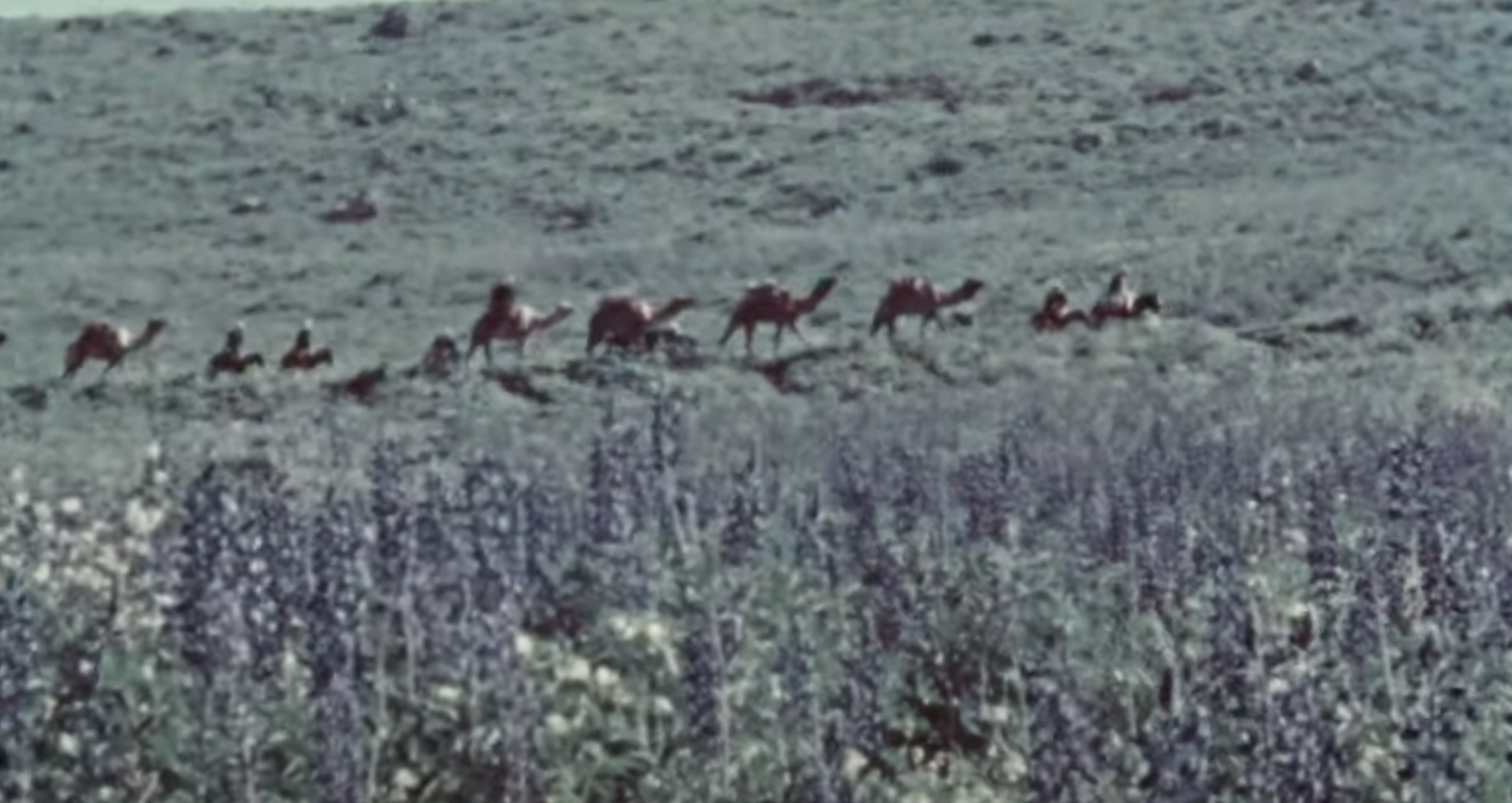A University of the West of Scotland (UWS) PhD student has been nominated for a BAFTA in the Best Short Film category.
Theo Panagopoulos’s documentary, The Flowers Stand Silently, Witnessing, reclaims two silent 16mm colour films, originally captured by an unnamed Scottish missionary documenting Palestine’s floral beauty, when the region was under British rule during the 1930s and 40s.
Theo’s journey to making The Flowers Stand Silently, Witnessing began when he discovered a collection of undigitised film reels at the National Library of Scotland which had remained unseen for decades.
The footage has now been transformed through editing and storytelling, into a moving work that challenges historical erasure and reimagines forgotten histories. Theo said: “Working closely with curators, I realised that these films couldn’t be shown without carefully framing the deeply complex and problematic colonial context they represented. That’s why I embarked on alternative works that collectively reclaimed the footage and presented it through a new narrative, one that centred on Palestinian experiences.”
The film explores how images can serve as a tool of both testimony and violence, highlighting the complex ties between people and land. This theme builds on Theo’s doctoral research into performance and counternarrative storytelling.
Theo’s research in Performance at UWS, supervised by Dr Eve Katsouraki (Lead-Supervisor), Dr Henry Bell, and Professor Graham Jeffrey, initially focused on cultural objects and archival material taken from colonised nations. Theo, who is of Greek, Palestinian and Lebanese descent then evolved his work to explore the Scottish film archives of Palestine, leading to engagement with Palestinian diasporic communities in Glasgow and Athens.
Trailer:
Reflecting on his nomination, Theo said: “I’m very grateful and humbled to have this film nominated for a BAFTA especially as it recognises not only the massive effort that the whole team put into this intimate and challenging film but offers an important platform for Palestinian narratives to be heard widely.
“I hope this recognition opens the doors for other films to be recognised that directly confront injustices in today’s world – that take creative risks and that embrace a type of filmmaking that is not just political but is also made politically.”
The documentary has been produced by the Scottish Documentary Institute (SDI) and funded by Screen Scotland. The film has already won the Best Short Documentary Award at the International Documentary Festival (IDFA) in Amsterdam and the Grand Jury Prize in the Sundance Film Festival Short Film Programme.
Theo has found a strong academic home at UWS, where his Vice-Chancellor PhD studentship in Performance supports research that challenges narratives and explores performance’s role in global and cultural issues: “These past three years have been incredibly formative. I’ve been fortunate to work with a fantastic supervisory team and be part of a vibrant academic community at UWS.
“The support I’ve received has been instrumental in shaping my research, as well as my growth as both a filmmaker and an academic.”
UWS’s Creative Media Academy, part of the School of Business and Creative Industries, has a strong track record of fostering award-winning talent. By bridging academic research and professional practice, the Academy offers a vibrant environment for filmmakers like Theo to excel.
Reacting to the news of the BAFTA nomination, PhD Supervisor Dr Katsouraki commented: “We are incredibly proud of Theo’s achievement. His approach to archival research demonstrates the critical and creative intersections we champion at UWS. This BAFTA nomination not only celebrates Theo’s talent but also underscores the importance of academic exploration in performance research and contemporary filmmaking.”
Professor Nick Higgins, Director of the UWS Creative Media Academy, said: “Theo’s BAFTA nomination is a testament not only to his remarkable talent and dedication but also to the strength of Scotland’s collaborative film ecosystem. Institutions such as the Scottish Documentary Institute and Screen Scotland play a crucial role in providing emerging filmmakers with the platforms they need to develop and showcase their work on the global stage.
“At UWS, we are committed to nurturing the next generation of storytellers, ensuring our PhD candidates and filmmaking students have the opportunities, support, and creative freedom to make meaningful contributions to contemporary cinema. Theo’s success highlights the impact of this approach, demonstrating how academic research and professional practice can come together to challenge narratives, reclaim histories, and inspire change.”
Headline photo: Screen shot from the trailer


